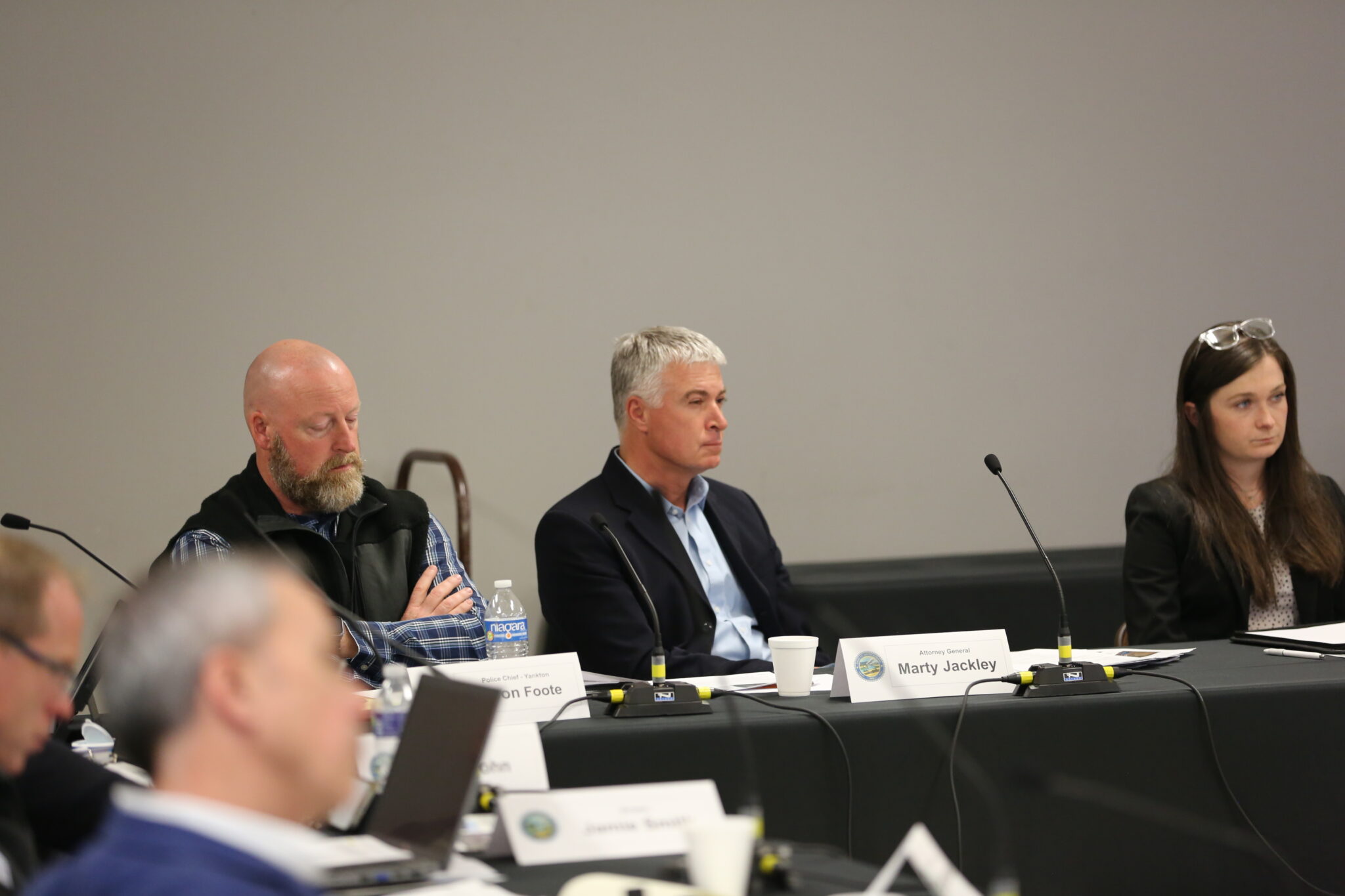
Joshua Haiar, South Dakota Searchlight
South Dakota Attorney General Marty Jackley shared Friday that the new immigration enforcement agreement he aims to enter into with federal authorities is the same type Gov. Larry Rhoden aims for, but said his agents will only use that authority in limited circumstances.
The agreements let officials trained by U.S. Immigration and Customs Enforcement (ICE) ask people about their immigration status and make warrantless arrests for suspected violations.
Jackley’s requested agreement between ICE and the state Division of Criminal Investigation is limited in scope, however, he said in a Friday press release.
“To be clear, I am restricting the use of this federal authority to violent criminals and drug dealers,” Jackley said.
Jackley first announced his intent to pursue the agreement during a news conference this week with Republican attorneys general at the U.S.-Mexico border. At the time, the type of agreement was not specified.
The news came via the release of Jackley’s proposed agreement. ICE had not yet signed the shared agreement signed stateside byDCI Director Dan Satterlee.
ICE offers three types of agreements under Section 287(g) of the Immigration and Nationality Act. One, the Jail Enforcement Model, lets trained jailers ask those in their custody about their immigration status, and lets those jailers search ICE databases and issue immigration detention orders.
Another trains local jail staff as ICE Warrant Service Officers, allowing them to serve immigration warrants obtained from a judge by ICE officers to inmates already in local custody. Minnehaha County Sheriff Mike Milstead and Hughes County Sheriff Patrick Callahan both made those types of agreements earlier this spring.
The third type of agreement offers the broadest scope of authority to local officers. The Task Force Model trains locals who work outside detention centers to act as limited immigration agents, enabling them to ask those they encounter in the normal course of police business about their immigration status, and to arrest them if they’re suspected of violating immigration law. The Obama administration discontinued the type in 2012 due to concerns about racial profiling and civil rights violations. They were revived by the Trump administration earlier this year.
Jackley and Rhoden, both Republicans and potential 2026 gubernatorial candidates, have characterized their support for the agreements as moves showing them to be in lockstep with President Trump’s immigration policies.
While Jackley said in a press release that his agents would use their immigration enforcement authority in limited situations, Rhoden spokeswoman Josie Harms would not expand upon the scenarios under which state troopers would use their authority once an agreement is in place for the highway patrol.
Taneeza Islam, CEO of South Dakota Voices for Peace, said the general message will make victims of labor and sex trafficking less likely to come forward, and lets perpetrators threaten to turn their victims in for deportation if they attempt to flee.
“You have legal protections if you come forward, but victims don’t know that,” Islam said.
ICE has authority and supervision over all immigration-related activities, according to Jackley’s agreement. Authorities must undergo ICE-led training and pass federal exams. ICE covers training-related travel costs and provides instructors and materials.
